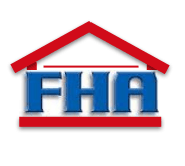Rates at a Glance
Live Real Time Rates in an Instant
Compare mortgage lenders, low mortgage rates, Real Time live rates, mortgage library for first time home buyers mor

How Your FICO Score
Affects Your Mortgage
Continued....
Do I Need My Credit Repaired?
Many times your credit score is less than optimal but can be raised with simple steps like paying off or down some debt making it possible to purchase a home or bring your score up enough to qualify for a better loan. Please see our section on credit score repair and rescoring.
What Type of Loan Is Best For You?
If at all possible, it is almost always best to use a conventional loan to purchase a home. It does require 5% down or more but the mortgage insurance is much cheaper than an FHA loan (about 1/2) and the mortgage insurance drops off when the loan is paid down to 78% left on the original loan amount. FHA never drops off. The only exception are VA and USDA loans which have no or very loan mortgage insurance and zero down and USDA do have property locationand income restrictions
What will my downpayment be?
If you credit score is below 640, chances that it may be better to go with an FHA loan which requires 3.5% down, or zero down from USDA (if the property qualifies) since the Private Mortgage Insurance may not insure the loan or charge an absorbinant amout of monthly insurance.
What are the Pricing Adjustments?
Regardless of which type of loan you qualify for, the higher the credit score the lower the fees. As an example, on a $200,000 loan, the difference between a 740 and 640 FICO with 5% down is $5800 in fees. Raising your score to a 680 FICO makes is $3700 cheaper!

Which Mortgage Is Right for You?
Many factors can and should influence your selection of a mortgage. As you read about the mortgages that are available and discuss them with your lender, keep the following five factors in mind:
• Your current financial situation and resources
• How you expect your finances to change in the future
• How long you intend to keep the home you’re buying
• How comfortable you might be with the idea of your
mortgage payment changing from time to time
• How rapidly you want to build equity
Common Mortgage Choices
Some loans may have higher rates but lower payments at the beginning; others carry lower rates but possibly higher payments. Some have steady payments, while others have payments that may go up or down. The key to understanding why loans behave this way is to understand “risk” and who is taking the most risk — you or the lender.
Risk can refer to many things, but in mortgage lending it is the risk of interest rates going up or down and the risk of the loan not being paid back.
There are two basic categories of mortgages: fixed rate mortgages and adjustable rate mortgages (ARMs).
Mortgages with payment adjustments — ARMS — usually result in lower payments at first, but you risk having significant payment increases if interest rates go up.
Mortgages with predictable, fixed payments are less risky but could cost you more over the life of the mortgage, and you may need to pay the cost of refinancing to get a lower payment if interest rates fall.
Fixed Rate Mortgages
With this type of mortgage, the interest rate is fixed for the entire term of the loan. Your monthly payments for interest and principal never change, regardless of how interest rates change in the market. Only changes in property taxes and homeowners insurance — both of which are usually included in your monthly payment — may slightly increase or decrease your payment amount, but generally the mortgage payment is stable.
Key Advantage: Predictability. The principal and interest part of your mortgage payment doesn’t change, so budgeting and financial planning are easier.
Key Disadvantage: The beginning principal and interest payments are usually higher than those of most adjustable rate mortgages, and if rates fall you may have to refinance and pay refinancing costs to get a lower payment.
Government-Backed Fixed Rate Mortgages
Many mortgage lenders offer special mortgages backed by agencies of the U.S. government (and many state and local governments as well) that can make getting a first mortgage easier. While most are not open to everyone, they can provide significant benefits to those who qualify.
Federal Housing Authority (FHA)
These are government-insured loans, primarily for first-time homebuyers. These loans may offer a lower downpayment than a conventional mortgage and may allow downpayments to be borrowed from a relative. Each area of the country has a maximum loan amount that is set by the Department of Housing and Urban Development (HUD).
Department of Veterans Affairs (VA)
These government-insured loans are available to veterans of the armed services, those currently on active duty or in the reserves, and widows or widowers of veterans. Some VA loans do not require a downpayment. There are limits on the size of VA loans, but they are large enough to cover the purchase of moderately priced homes in most areas of the United States.
Rural Housing Community Developement (RHCDS)
If you live or want to buy in what is considered a rural area, ask your mortgage lender if you qualify for this program, which is sponsored by the U.S. Department of Agriculture. Click this link to see the areas that qualify.These loans also offer up to102% financing with very low monthly mortgage insurance.
Other State and Local
Loan Programs
Other loan programs managed by state or local housing administrations, other agencies or private organizations may be available in your area. Similar to FHA and VA loans, these programs can offer lower downpayments and less stringent qualification guidelines. Call the office of your state governor or county or city dministrator or chief executive officer for specific information in your area.



